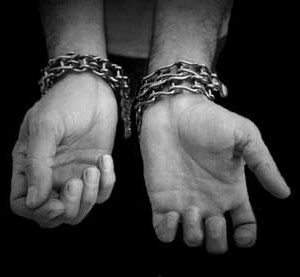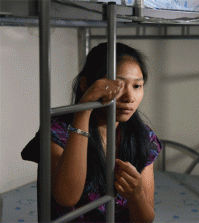- Finding Unshakable Power in a World That Wants to Pull Us ApartPosted 1 month ago
- What could a Donald Trump presidency mean for abortion rights?Posted 1 month ago
- Financial Empowerment: The Game-Changer for Women in Relationships and BeyondPosted 3 months ago
- Mental Health and Wellbeing Tips During and After PregnancyPosted 3 months ago
- Fall Renewal: Step outside your Comfort Zone & Experience Vibrant ChangePosted 3 months ago
- Women Entrepreneurs Need Support SystemsPosted 3 months ago
Hong Kong's dirty, bloody secret

After 8 months of being forced to work with no pay in a Hong Kong family’s home, Erwiana’s beaten and broken body was dumped at the city’s largest airport with a one way ticket back home and a frightening threat — tell anyone about what happened and your parents will be killed.
Workers such as Erwiana are trapped in a vicious economic cycle, which traps many others in modern slavery in Hong Kong.
Dishonest placement agencies illegally lock the world’s most vulnerable workers in debt, often charging them 7 or 8 months’ wages to be placed, making repayment next to impossible. The good news is that Hong Kong law only allows agencies to charge up to 10% of a worker’s monthly wage2. Unfortunately, the city’s government does not regulate these agencies, which allows this extortion to continue.
The result? Many domestic workers — both penniless and powerless — become victims of increasingly harsh treatment at the hand of their employers and have nowhere to go for help.
Hong Kong has over 300,000 migrant domestic workers. In November 2013, Amnesty International documented dozens of Indonesian women trapped there in conditions amounting to modern slavery. These women had been locked inside the homes of strangers, their passports taken away, often beaten and sexually abused, and with no recourse to justice2.
We can’t go back in time and change what happened to Erwiana — but we do have an unprecedented opportunity to change the destiny of thousands of domestic employees now working in Hong Kong. The international press, demonstrators and even some employers are already putting pressure on the Hong Kong government to effectively regulate and monitor placement agencies. If we generate a groundswell of support, we can help ensure that young women like Erwiana are protected from modern slavery.
Erwiana’s employer only released her when she was beaten so badly, she was unable to continue working. Luckily, a fellow passenger was able to see that Erwiana was injured and offered her assistance.
If we stand together to demand that the Hong Kong Government implement its laws, we can help protect women and girls from being trapped in domestic forced labour and we can help spark real change. Forward this email to your friends and family and ask them to add their voice to yours. Let’s make this a truly unprecedented call to action to protect the women and girls who work behind closed doors in the homes of Hong Kong.
In solidarity,
Debra, Fiona, Nithin, Mika, Olly, Amy, Sarah and the Walk Free team
Walk Free is a movement of people everywhere, fighting to end one of the world’s greatest evils: Modern slavery.



